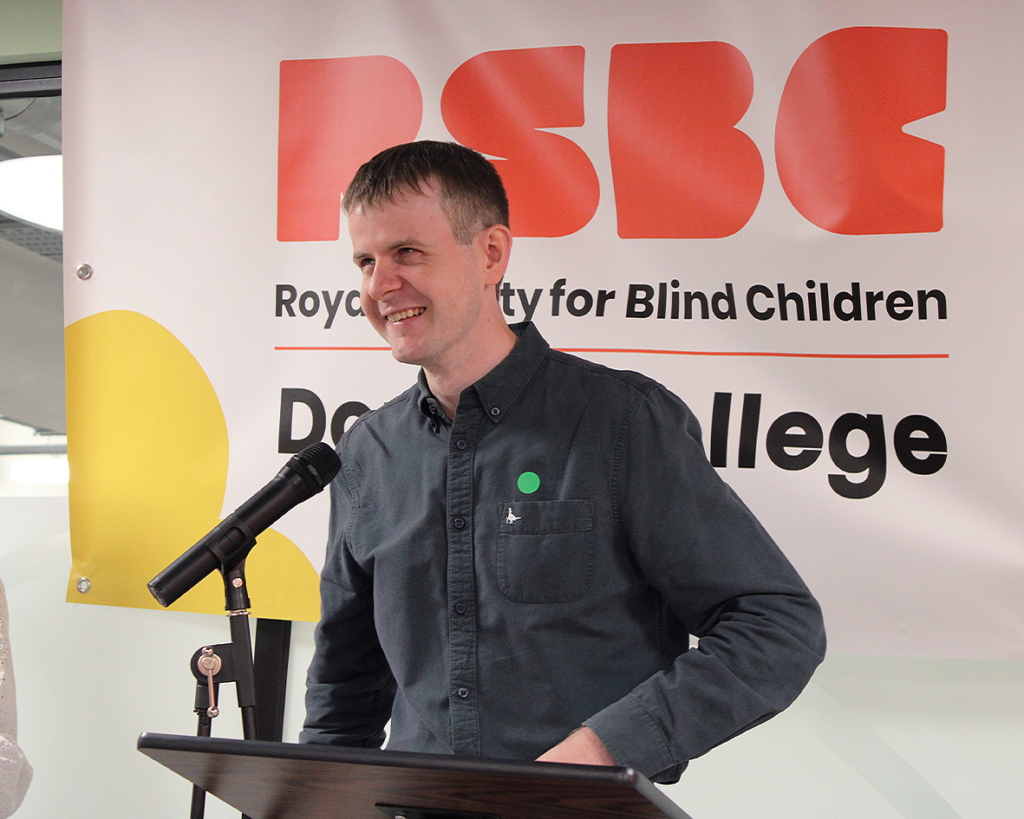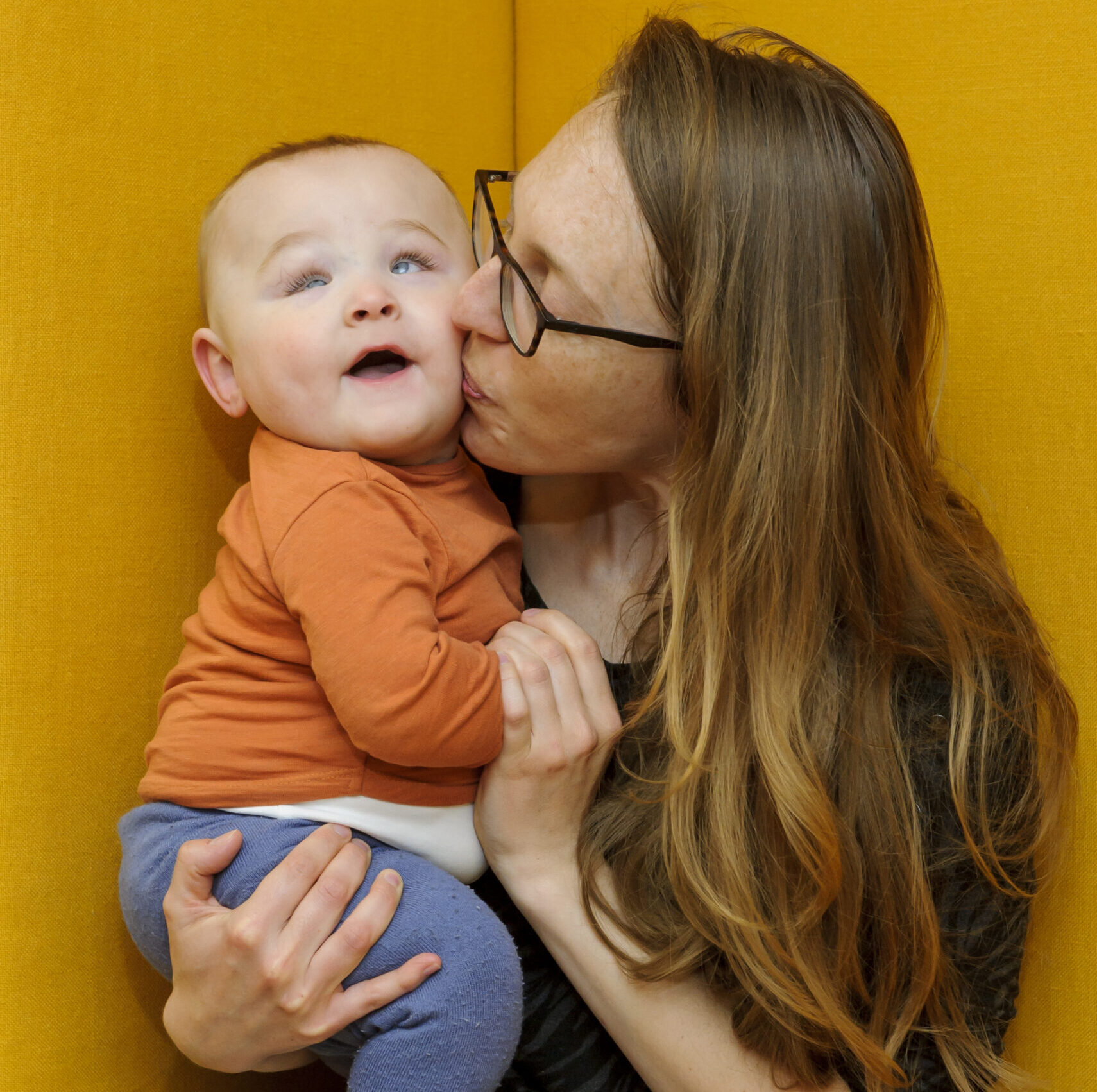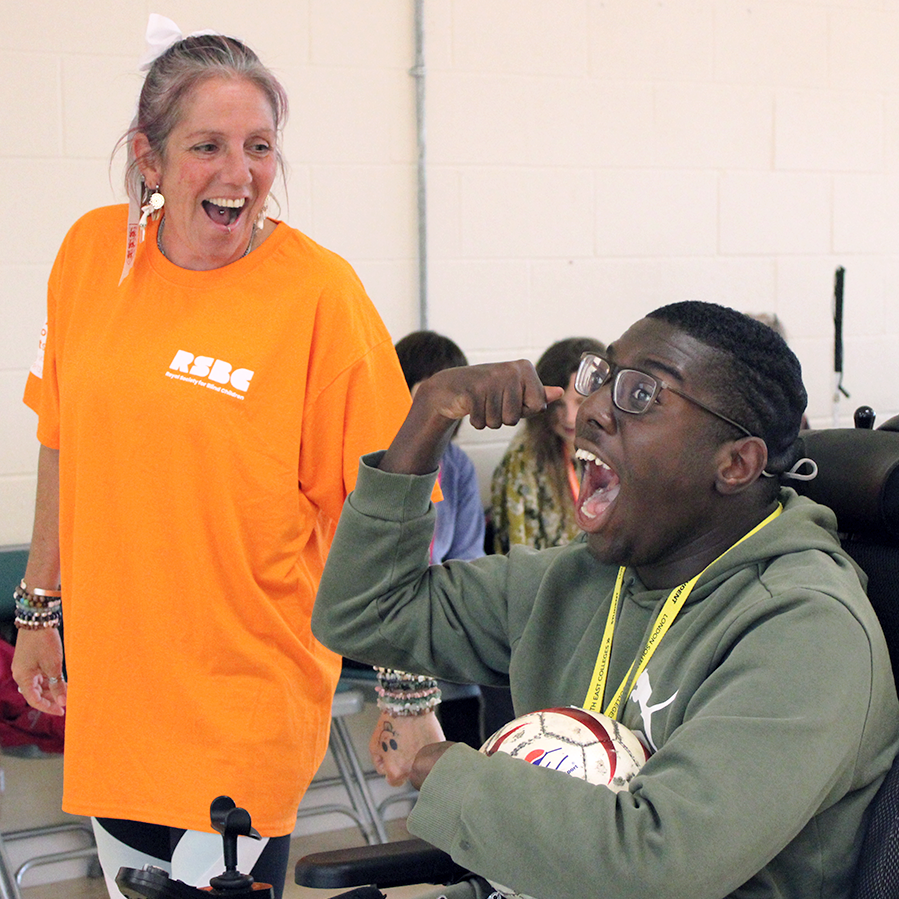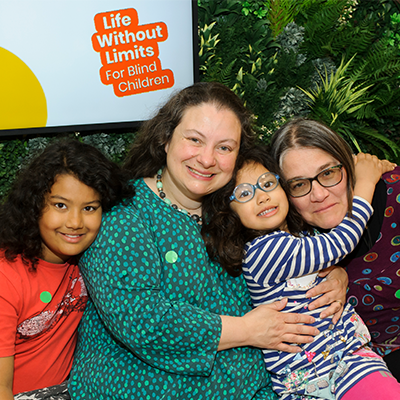Callum’s Story

Callum's journey to becoming a trustee
Callum’s been a trustee with RSBC since May 2021. He’s also the Chair of Governors of RSBC’s Dorton College, a specialist further education college for vision impaired young people aged 16-25. We spoke to Callum about what’s involved in being a trustee, why he does it, and what to consider if you’re thinking about becoming a charity trustee yourself.
Q. What made you decide to become an RSBC trustee?
A. Before I joined, I knew it was something you could do, though it wasn’t really something I’d thought about in any depth. However, the idea of making a real difference to a charity began to take shape. I’d be doing something of importance, and as I’ve been blind since birth, I can relate well to people who are vision impaired.
RSBC was the first charity I noticed that was looking for trustees, and as an organisation, it seemed a good fit.
Q. What does your trustee role involve?
A. Whilst all trustees have legal and financial responsibilities, regardless of what they do for their charity, my role’s pretty unique, as I’m also Chair of Governors at RSBC’s specialist further education facility, Dorton College. So, I have dual responsibilities – the standard functions that all trustees have, and educational responsibilities too.
It helps that I have professional experience that’s very relevant to my trustee role. I run a disability consultancy and have dealt with transitioning young people from further education to higher education or employment. I’ve also been through these stages myself as a blind person.
In addition, I was on a steering panel for a project with RNIB and the University of Birmingham about education into employment and also ran an employment support programme in Surrey to enable people with a vision impairment to seek and sustain employment. It’s quite similar to RSBC’s Futures programme.
I have both lived experience in wider societal and professional experience in the education sphere, and this has certainly helped me as an RSBC trustee.
Q. How do trustees ensure that RSBC’s run in accordance with its mission and values?
A. Our Board of Trustees’ regular Council meetings take place four times a year. As a Board, we manage the charity on a more ‘global’ level, addressing the strategic development of RSBC, but we also have a number of council committees which focus on specific areas. This is pretty standard for all charities, and it means that we can really dive into the strategy and detail of the directorates within RSBC, such as Services and Safeguarding, Income and Engagement, Fundraising, Marketing and Communications, and Dorton College.
The Board of Governors at Dorton College oversees educational development on a more granular basis.
Q. What are the main challenges for a charity trustee?
A. The main ones are finance and fundraising, and legal compliance, which are very important areas. Others include safeguarding – protecting people’s health, human rights, and wellbeing. Safeguarding is, of course, important for the children and young people we support, as well as for RSBC, and it’s something that the organisation is good at. However, the ultimate responsibility lies with the trustees. We need to get the balance right, in that we’re overseeing things properly without being too operationally involved. It can be tricky to achieve that.
Q. How do you measure success, and the impact that the charity is having?
A. Each directorate has key performance indicators that we measure against, but how we measure our impact is constantly evolving. We look at areas such as ensuring our fundraising improves year on year, and how our engagement with our audiences is progressing – are more people aware of us, and supporting us? How many children and young people are we reaching? What real differences are we making? From an educational point of view, I also consider the number of students we have at Dorton College and look at our pipeline for the next year.
Q. What would you say are the biggest achievements during your time as a trustee at RSBC?
A. For me, there are two stand-out achievements. The first is that there are more students attending Dorton College this year than there have ever been in its history, and the second is that we have our first-ever A level student there.
Q. What do you find challenging about being a trustee?
A. I love my work in education, going to the college and having conversations with Josie, who’s the Principal and Director of Education at RSBC. We discuss what we can do better, because we always have a desire to improve, and I like to know that’s happening.
If an issue occurs at Dorton, as Chair of Governors I’m the main communicator to those in the college and the rest of the Board. I need to make sure we’re doing whatever we’re required to do in certain situations. Sometimes it can feel pressurised, because you may not have much time to completely take stock of what’s happened before you have to act.
Another challenge for me can be the need to understand and consider other people’s ways of working and their personalities, so that I can communicate with them in a way that gets the best out of them. For example, if I want them to see how something can be manageable for them, I need to understand their characteristics and approach them in a way that makes them more receptive.
Overall, I have to say that I’m very positive about Dorton College and its many successes – there are far more of those than challenges!
Q. What key skills should a successful trustee have?
A. I’m sure other trustees would answer differently, especially as I’m not a traditional trustee in many ways, but I’d say it’s extremely important to have commitment. Don’t expect to just go from meeting to meeting, – being an effective trustee is much more than that. An RSBC trustee should try to regularly attend events and sessions if they can, because while it’s one thing looking at papers to assess situations, it can’t beat firsthand experience. I try to do it two or three times a year, and many of my fellow trustees are starting to do this too.
A trustee should also be willing to make evidence-based decisions, rather than ones that are emotion or opinion-based. And as a trustee, you should be prepared to challenge other people, as what you do and the approach you take could be the difference between the charity making the right decision or the wrong one.
Q. Finally, what advice would you give to someone who is considering becoming a charity trustee?
A. Being a trustee is amazing! It’s really rewarding and hugely enjoyable – but don’t decide to do it unless you’re willing to give 100%.
Want to find out more about our current trustees? Meet our other trustees here.




